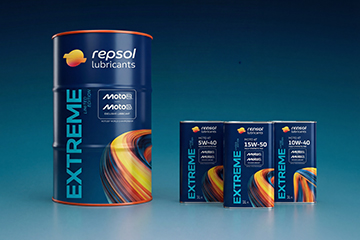Lubricant sealing: what it is and why it is important

When we think of engine oil, the first thing that comes to mind is its ability to lubricate moving parts and reduce wear. However, this essential fluid has another lesser-known but equally relevant function: ensuring the seal, an essential aspect for the proper functioning of any mechanical system.
Therefore, in this article we will explain what sealing is, why it is important, and how the right lubricants can make a difference in the useful life and efficiency of equipment.
What is sealing?
Sealing refers to the ability of a system to prevent leaks or the entry of external particles, such as air, water, or dust. For the engine, this property is vital to properly seal the combustion chamber, where the mixture of air and fuel is burned to generate power. If the chamber is not completely sealed, some of that energy can leak out, reducing engine power and increasing fuel consumption.
This is where engine oil comes in, acting as an ally that ensures every drop of energy is harnessed to the fullest. This is because the lubricant creates a protective film that fills in the small gaps between the piston and the cylinder. This way, direct contact between metals is avoided and the combustion chamber is sealed, preventing the gases generated during the explosion from escaping.
Why is sealing so important?
The importance of oil in sealing is evident in the daily performance of the vehicle or machinery for several reasons:
- Prevents leaks and economic losses. Lubricant leaks not only represent an economic expense for the loss of the product, but can also cause breakdowns and downtime in the equipment.
- Protects against external contaminants. The entry of elements such as dust, moisture, or metal particles can quickly degrade the lubricant, reducing its ability to protect internal components. This accelerates wear and increases the risk of corrosion or mechanical failures.
- Maintains system efficiency. A well-sealed system ensures that the lubricant flows evenly and steadily, ensuring proper lubrication on all moving parts. This translates into lower energy consumption and better overall performance.
Viscosity: key to sealing
It should also be noted that a key aspect for sealing is the viscosity of the lubricant. This parameter, which is measured according to the SAE standard, determines the thickness of the oil film and its ability to adapt to the specific needs of each engine.
In other words, the degree of viscosity directly influences the ability of the oil to seal the combustion chamber. For example, older or more worn engines usually have larger clearances, so they need a higher SAE grade than more modern or less used ones.
For this reason, using an oil with an incorrect viscosity can have negative consequences. If it is too low, the film will be insufficient to seal properly, but if it is too high, the oil may not lubricate properly and increase wear and fuel consumption.
Practical tips for the maintenance of your systems
If having a quality lubricant is essential, there are also other measures you can take to ensure the sealing of your equipment:
- Conduct periodic inspections. Regularly check the condition of seals, gaskets, and connections for possible wear or damage.
- Choose the right lubricant. Make sure to use a product that is compatible with the technical specifications and operating conditions.
- Control the lubricant level. Maintain the proper level to avoid overpressure or voids that may compromise the seals.
- Follow the manufacturer's recommendations. Both in the design of the system and in the use of lubricants, the manufacturer's instructions are key to ensuring optimal performance.
At Repsol Lubricants we develop products to meet the most demanding requirements in terms of performance and protection, ensuring that every mile traveled is as efficient as the first. If you have questions about which lubricant is best suited to your needs, you can fill out this form and our technical team will be happy to help.
Related content




